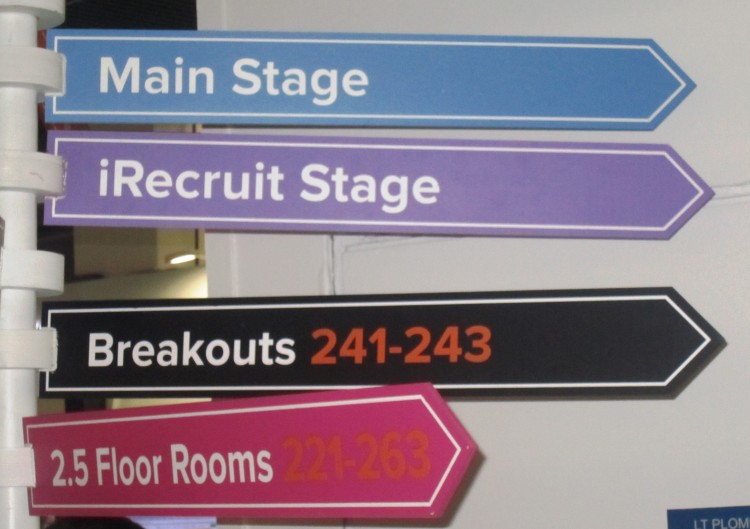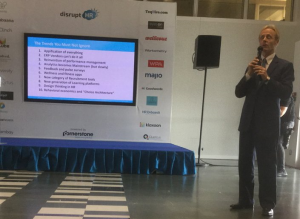Culture of overwork
The advancement of employment conditions was very much a characteristic of the 19th and 20th centuries to improve the lot of the working person. In 1926 the Ford Motor Company became one of the first companies in America to adopt a five-day, 40-hour week for workers in its automotive factories.
The 40 hour week became over time, a workplace norm in most developed countries over the course of the century, as a benchmark for employment organisation, with still further reductions in maximum working hours in some geographies. Education was seen as a way out of this type of treadmill. The more successful worked fewer hours than the average working person.
Twofold regression
Yet in the last decades, we have seen a regression, with some sectors gaining notoriety for boiler room pressure and cultures of overwork. In October 2014 Goldman Sachs introduced the concept of “Protect Saturday” insisting that junior analysts take Saturdays off (except when they were working on live deals.) This was considered on Wall Street as almost revolutionary, but seems Dickensian in its thinking.
Further shifts
The arrival of technology, particularly the smart phone, has produced what Josh Bersin of Deloitte calls the “overwhelmed employee.” Now we have an expectation of 24/7 connectivity, instant gratification and responsiveness as well as availability. We are seeing a blurring between personal and professional, and in work and out of it.
Ironically there has been another shift. 3 decades ago more highly qualified employees were less likely to work longer hours compared to lower paid and less qualified. A 2008 Harvard Business School survey of a thousand professionals found that 94% per cent worked 50 hours or more a week, and almost half worked in excess of 65 hours a week. Attributed to the Boomer work ethics characterizing workplace culture, with their work centric focus on hierarchy, power and prestige, successful people now work longer hours than ever. But this doesn’t explain similar overwork cultures found in Silicon Valley.
The notion of the idle rich seems to have gone out of the window.
Education and upward mobility
Education has always been seen as the path to upward mobility. This is no longer always the case. The flood of graduates onto the market has created a glut, which is not being matched by career opportunities. The arrival of zero hour contracts and the gig economy, is leaving many people running a number of jobs simply to pay the bills. Marianne, a recent English graduate who is still looking for a job post graduation, works in a bar, a shop and a theatre, all on either a short- term, part-time or zero hours contracts. “It’s exhausting, I never know if my hours are going to be cut, so I take all the work I can get to make sure I don’t have to move back to live with my parents. I’m not committed to overwork – I have to do it”
New status symbol
. Time scarcity seems to have become a corporate and cultural badge of success and an indicator of professional status. It is very much gender driven with overwork being intrinsic to male dominated corporate cultures. Yet this is set against a backdrop of a chronic fall in employee engagement. Reports of a reduction in productivity, decreases in creativity and corresponding increases in days lost because of health issues are commonplace.
In some sectors where services offered are based on billable hours, such as consulting or law, there are few incentives to make people more effective and to work shorter hours. The productivity of knowledge workers is also much harder to evaluate. Martin an ex-corporate lawyer in a Magic Circle firm in London says “the culture of overwork is institutionalized and the only way to find any balance is to leave. The first document I had to sign when I started, was a waiver of the European Time Directive regulating upper hours working limits (48)”
He left aged 32, at a time when 80 hour weeks and working 48 hours without a break were his norm. He took a 30% drop in salary knowing that there would be a line of others queuing for his job, with the lure of partnership as the carrot. “Many are prepared to put in long hours just to stand a chance of making Partner and a 7 figure salary. This impacts family life and relationships because you have to do this from usually 28-40 which is a critical time in your life. For me the sacrifice wasn’t worth it”
Cultural change
What has to change is the cultural commitment to overwork which indeed penalizes anyone who wants to have some sort of family life. It particularly impacts women who leave organizations such as these, in their droves, or opt to stay in lower level jobs. Some businesses compensate by providing corporate mindfulness training and concierge services and even sleeping pods.
But the question is, are they band aids which treat only the symptoms, rather than addressing the core cultural malaise? There is a reason the company does your laundry.
Initiatives to chip away at this regressive mind-set seem to be working. Employee engagement is a hot topic. Sweden is introducing 6 hour days to increase employee satisfaction and productivity. Goldman Sachs has even reported promoting a record number of women to Managing Director status, which might reflect a further sea change in thinking, as their senior echelons achieve greater gender balance.
What is needed is a corporate culture where people can thrive, both in the workplace and outside it. This is one area where gender balanced leadership teams would surely have an impact.
Are you caught up in the culture of overwork?












